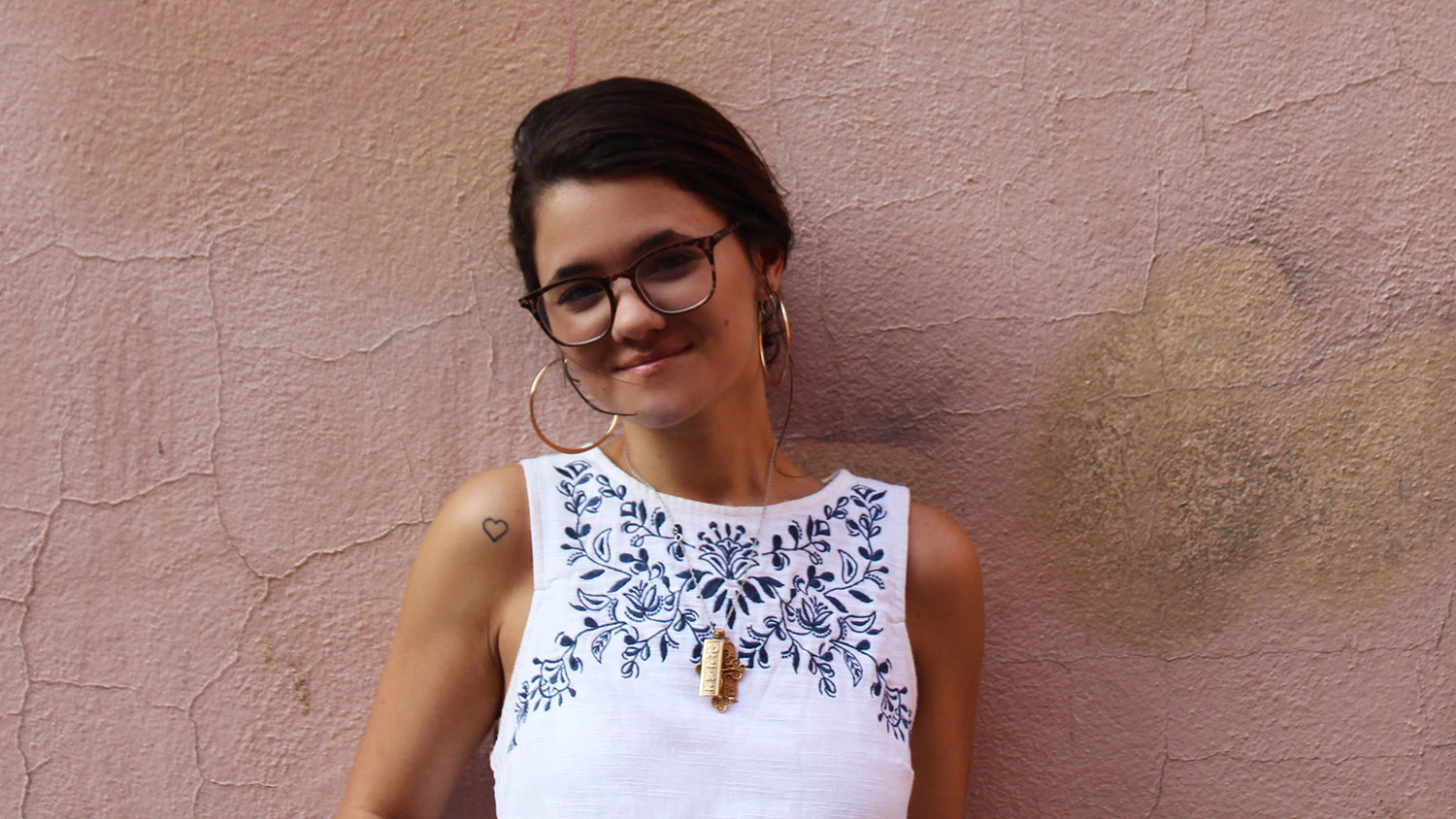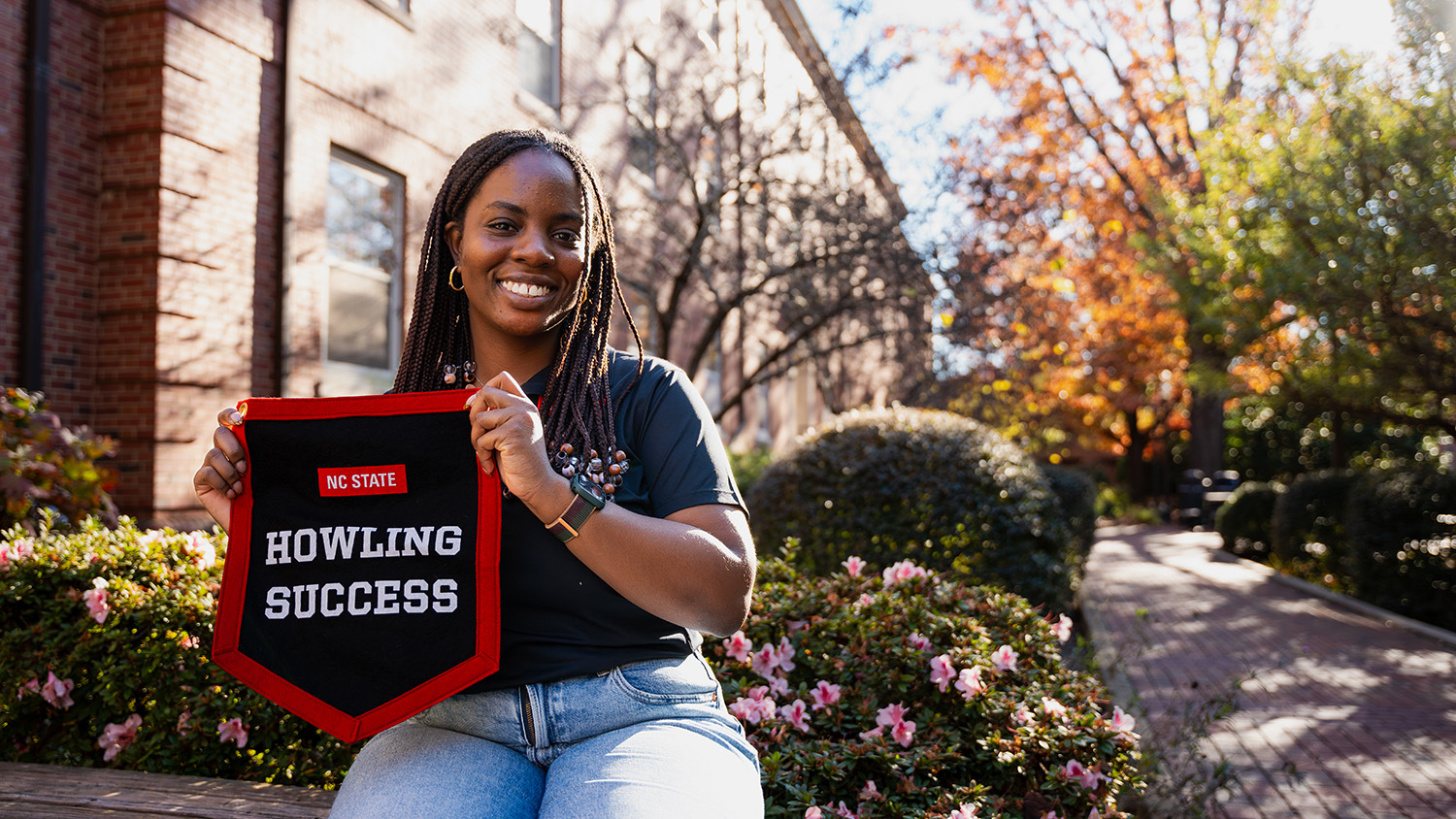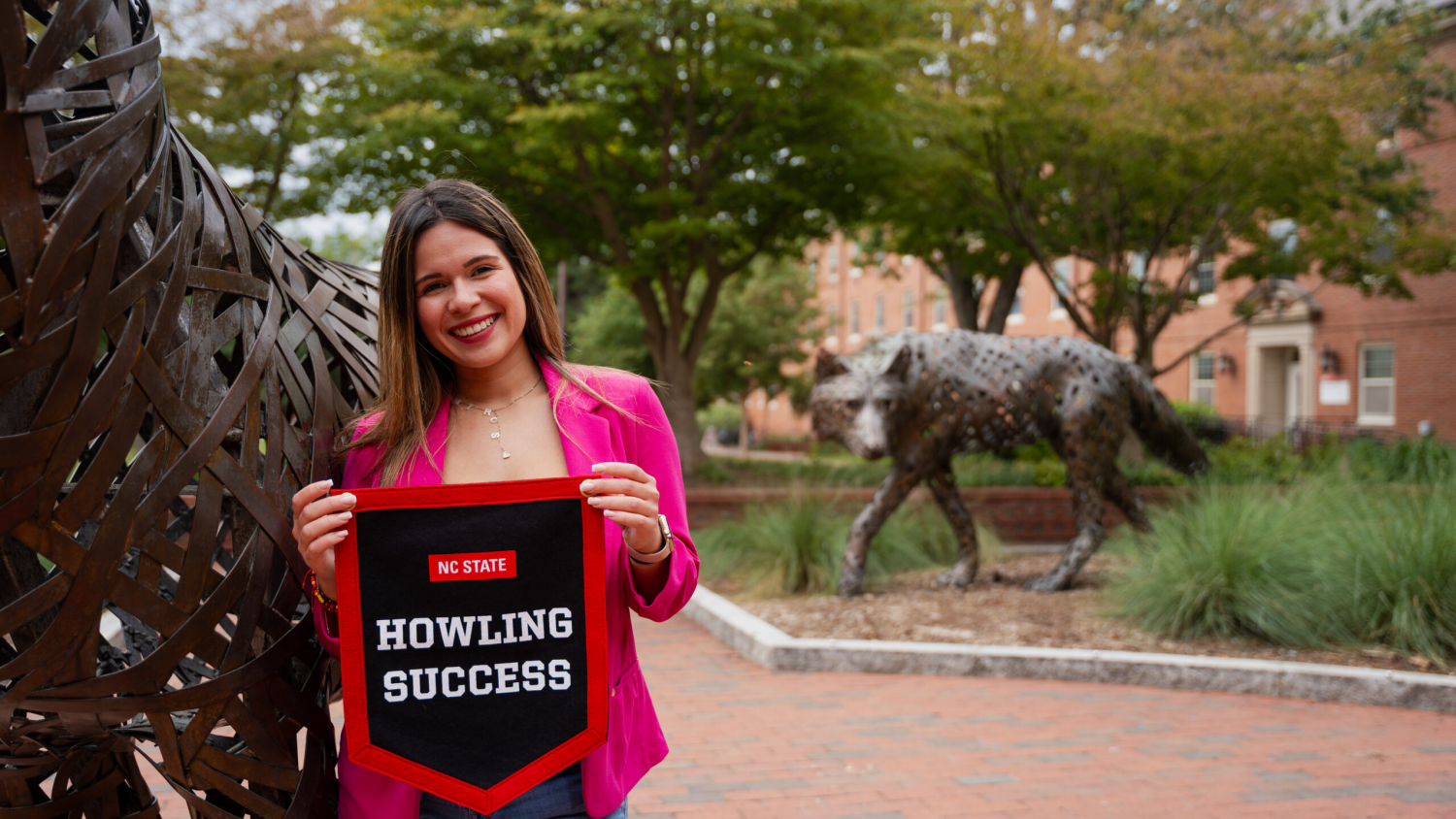Undergraduate Researcher Studies Adolescent Morality, Ethical Programming of Autonomous Vehicles

Meet Elizabeth Eskander, a senior double majoring in psychology and biology. For the past two years, she’s worked as an undergraduate researcher with philosophy professor Veljko Dubljevic and the NeuroComputational Ethics Research Group. Dubljevic is also a faculty member in the college’s science, technology and society program.
Eskander has helped study topics such as how adolescents develop moral judgments and ethical programming of autonomous vehicles. We caught up with Eskander to learn more about her research focus, goals after graduation and advice to aspiring student researchers.
How long have you been a research assistant at NC State?
I have been a research assistant for three years. I began working with professor Chang Nam in his neuroergonomics lab. For the last two years, I have been assisting professor Veljko Dubljevic with his work in neurocomputational ethics.
How and why did you get involved?
My interest in research began with a desire for hands-on experience with electroencephalography (EEG) and brain wave studies while taking a biopsychology class. Then, I assisted professor Chang Nam who was studying the brain activities associated with trust and how trust develops when humans interact with robots. A year later, I accepted an undergraduate research position with professor Dubljevic because of how much I enjoyed his Neuroscience and Philosophy class.
What are some of the topics you have helped research with professor Dubljevic?
I assist in adapting professor Dubljevic’s theoretical agents, deeds and consequences (ADC) model of moral judgment making to how these moral judgments develop through adolescence. And I help with his National Science Foundation CAREER Grant project, which focuses on how the ADC model can be implemented into the ethical programming of autonomous vehicles. The research group also meets weekly to discuss our research projects, examining academic literature, or reviewing drafts relating to our work. The topics center around studying the ethics of neuroscience and AI technology along with the cognitive neuroscience of ethics.
What do you like most about your research experience?
I like the constant exposure to new ideas, concepts and information that I otherwise wouldn’t have encountered in my classes. Most projects I work on are interdisciplinary, forcing me to engage with topics outside my intellectual comfort zone, like robotics and AI.
How knowledge from different academic fields can come together to develop deeper understandings of modern problems and their potential solutions is fascinating and teaches me to broaden my perspectives.
What have you learned from your research experience?
I learned to engage in more abstract and critical thinking. The information you interact with and the methods you use must be evaluated and analyzed to achieve high-quality results. Trying to operationalize abstract concepts like morality requires challenging your mental flexibility and creativity in unique ways so you can conduct empirical studies.
Learning and practicing these skills through my research experiences has allowed me toI apply them to almost all aspects of my life, even outside of academics. Working with professor Dubljevic, I also learned to place greater value on and pay more attention to the ethical considerations in conducting research and implementing new technology into society.
Has your research experience influenced your career or educational path?
Before working as a research assistant, I was unsure of my career path. I was interested in cognitive science and human consciousness from my psychology classes. But research catalyzed my developing passion and enthusiasm for academia and the pursuit of higher knowledge and understanding.
I’ve also become more invested and engaged in my schoolwork and have a deeper appreciation for what I learn in class. I can’t see a future where I’m not involved in academic research in some capacity.
What advice would you give to students seeking to become research assistants?
Don’t just seek out research opportunities that directly coincide with your degree or professors you know. Since there are so many different opportunities to participate in research at NC State being too selective could limit your exposure to a wider range of experiences.
What are your plans after graduation?
After graduation, I plan on pursuing a master’s degree in cognitive science and then hopefully continue my studies towards obtaining an M.D./Ph.D.
- Categories:


